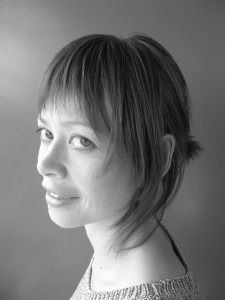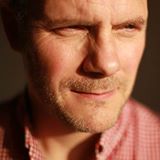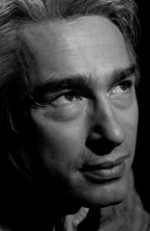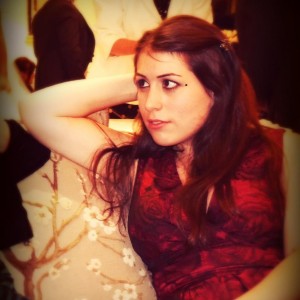Liz Jensen’s eight acclaimed novels include The Ninth Life of Louis Drax and most recently two ecological thrillers, The Rapture and The Uninvited. Her fiction, published by Bloomsbury, spans black comedy, science fiction, satire, family drama, historical fantasy and psychological suspense. It has been adapted for radio, appeared in anthologies, developed for film, short-listed for the Guardian Fiction award, nominated three times for the Orange Prize, and widely translated. She has two adult sons and shares her life with the Danish writer Carsten Jensen, best-selling author of the internationally-acclaimed We, The Drowned. She lives in Copenhagen.
Hi Liz, thank you so much for joining us. That really is an impressive bio. Which books were the source of your early inspiration towards building your passion for writing?
The Cat in the Hat was the first book I remember reading on my own, and it must have lit a fire in me because I haven’t stopped reading in the 50 years since – so thank you, Dr Seuss. I knew by around eight, when I wrote my first ’novel’ (The Ghost with the Wooden Leg) that this was my calling. While on the romantic front, I’d be marrying a baboon or possibly a gorilla. Ah, those early convictions! By the time I was fifteen I’d dropped the primate obsession but was still an avid reader. I remember that Mervyn Peake’s Titus Groan and Gormenghast reconfigured my mental landscape the way only good fiction can. I thought then: ’Yes, this is still what I want to do’. Yet paradoxically it was around that time that my confidence faltered. Expressing a wish to write seemed on a par with announcing you’d be flying to Venus in a sequinned ballgown: borderline loony.
At this point it dawned on me that to finance the writing life I wanted (which I assumed I’d be indulging in secret, like a kinky habit), I’d need a ’proper job’. Journalism ticked the Normal box, and felt like a smart way in. I took some risks by catapulting myself to first Hong Kong and then Taiwan, where I got lucky. Back in the UK the career took over, and there was a decade or so in which the Grand Writing Plan simply got shelved and semi-forgotten because I was too busy. But there were moments when I remembered. One of them came in my late 20s when I read Jeannette Winterson’s Oranges are Not the Only Fruit. That novel thrilled me to the core. Realising that someone my own age could write incisive, ground-breaking novels that told fundamental truths was an inspiration.
Which writers/authors currently inspire and delight you?
I am going through a phase of reading American literature, in particular memoirs and fictionalised memoirs: what in Scandinavia they call auto-fiction. The Norwegian writer Karl Ove Knausgaard paved the way for books like Jenny Offil’s Department of Speculation and Ben Lerner’s 10:4, both intelligent hybrids that splice memoir, fiction and elements of the poetic truth together, forming a vivid perspective on how we humans cope with everyday reality. You could argue that the emerging genre is navel-gazing incarnate, and the literary equivalent of the selfie. But at its best, forensic introspection can be generous, illuminating and creative. I have also recently discovered the memoirs of Mary Karr, who among others paved the way for all these writers. I’ve returned again and again to The Liars Club, Cherry and Lit, all read by Karr herself (luminously, by the way) on audio. The combination of searing honesty and deadpan humour is perfectly-judged. It feels almost artless, but it’s far from that: she comes from poetry, and you can sense it in her choices and rhythms. Tobias Wolf told her once: ’don’t be afraid to look like an asshole’. She was brave enough to take that advice, and it led to a truly striking body of work. Then there’s the brilliant essayist Rebecca Solnit, who I first discovered through her iconic essay Men Explain Things to Me. A Paradise Built in Hell, her investigation into the way ordinary people co-operate to re-build their lives after disasters, is a masterpiece.
Was the first novel you ever wrote the first to be published? How long had you been writing before this happened?
When my then husband was offered a job in France, I jumped at the chance to leave the BBC and start a new life: now I’d finally write that novel. Two years later, I was living in a tiny village, making cement sculptures, doing freelance journalism and translation, and experimenting with everything under the sun including hang-gliding. But still no novel. By the time I was pregnant it felt like now or never. To begin with I set myself the task of writing 1,000-word pieces every day, just to get into the writing habit. Those exercises – about French village life – consisted of factual prose that kept trying on fiction’s clothes and enjoying what it saw in the mirror. I never sent them anywhere, and although looking back they weren’t much cop, they were a neccessary stepping-stone into something wilder and truer. Despite the writing exercises, I still didn’t have a story to tell all through my pregnancy. Oddly enough, it was giving birth that did it. It started because I was so traumatised by the pain, thanks to a failed epidural, that I had to write the horror out of my system. Next I tried turning some of that post-traumatic-stress stuff into a proper scene, rather than an existential scream, and that led me to write further scenes. Then there was my son himself: the sudden, vivid presence of an extraordinary, demanding little person who was all personality, gave me both a narrative and a reason to write. In between breast-feeding and watching a soap opera called The Young and The Restless on French TV, I was amassing sentences that became paragraphs and then chapters. Interestingly, the gruesome childbirth scene never made it into the finished book. But other things about motherhood did, and I have my son to thank for that. I learned then: anything can get you going. And you’ll know when it has, because you’ll feel it yelling for you in the night as loud as any infant.
In all, I spent four and a half years after my son’s birth wrestling with the novel that became Egg Dancing. Writing is a voyage of discovery. You take wrong turns. You give up for a bit and you re-start. You try to keep faith in yourself. You keep trying to show off to the people you love.
Do you have a particular place to write? Or a set time of day/night?
I’m pretty flexible. During the years when I had pre-school and school-age children, my working day revolved around their schedule. When they were elsewhere, unless there was a particularly compelling reason to think about them, I didn’t: I just entered whichever imaginary world I was occupying at the time, and wrote in my study. When they came home, the working day often ended there. But you never quite switch off: a novel is always bubbling away at the back of your mind. Although I never wanted my boys to think my work was more important than their company, I didn’t feel bad about grabbing every spare moment I had.
Ever since they grew up and left home, I’ve had far more time to work – but I can’t say it has made me more productive. In fact the more constrained my time is, the better I deploy it. Recently I hit a wall with my writing and decided to try doing things differently. So now I go to a cafe around the corner from my home in Copenhagen and write in a notebook, in longhand. I find this frees me up. If I have written anything worth pursuing, I will follow it up back at my desk, on the laptop. Dangerous as this may sound, I’m not opposed to introducing alcohol into the equation: it can trigger a useful mental shift. And hell, it worked for JG Ballard.
What moments in your career have given you the greatest pleasure and inspiration?
My first novel being accepted by an agent was such a shock that I lost my voice for a week. And when I signed a contract with Bloomsbury, I switched overnight from being a fundamentally dissatisfied person to a fundamentally satisfied one. It never ceases to thrill me that I have managed to make a living out of spinning stories from thin air. My only ambition is to be able to carry on doing it.
I love exploring new genres, and passing on what I know to those who are starting out. Teaching is a joy, especially when students blossom and produce exciting work. I enjoy the company of my writer friends and the writing community, both in the UK and Denmark, and online. It’s a generous, stimulating world to be part of. And everyone loves to talk shop.
I’m still processing the pleasuure of The Ninth Life of Louis Drax being made into a movie. Max Minghella’s screenplay injects new elements I wish I’d imagined myself: it’s a thrilling creative metamorphosis that takes the story to a new level. On the set in Vancouver last November, I kept wishing I could freeze time: I don’t think I’ve ever felt so spoiled, or on such a protracted high. It’s surreal to think that something you dreamed up a decade ago could suddenly involve helicopters and catering vans and fake coma facilities and silicon dummies. The Drax cast and crew were warm, funny, hard-working, and utterly committed. I sat on the sidelines with my family, crocheting many mis-shapen garments, including a little headband for Jamie Dornan’s baby, and a weird snood for Aiden, the brilliant young boy who plays Louis: the activity kept me calm. For a week, I was the hectic woman with the big ball of wool and the Cheshire cat grin.
As a creative writing consultant, what advice would you give to students and aspiring authors?
Read, read, read. Don’t expect to get it right first time. Don’t be afraid to emulate writers you admire. Your own voice will end up shining through no matter what. If you don’t have a big idea, play around with smaller ideas and see what happens. Be your wildest self at all times: be receptive to what Stephen King calls ’the boys in the basement’. (And read his essential On Writing too). If you have an extreme thought, a thought you are almost ashamed of having and can barely articulate, strive to put it into words. This is what people want when they read.
And as an experienced and successful author?
Read, read, read. And since it’s garbage in, garbage out, read quality.
How does one begin writing a novel?
Good question. But I have no proper answer. You might think that having written one novel the next is easier, but it isn’t. With each story you tell, all you learn is how to tell that story.
I like to start with a big idea or a theme – but in order to convey that, I need to find the right voice. The story and the setting emerge once the voice begins to get into its stride. I might know the ending early on, but find that the middle is a blank, so it’s a question of reverse-engineering it. I believe in spending a lot of time on the opening pages, because that’s where you are establishing a tone and a world. If you have a first chapter you are proud of, that sets a gold standard for the rest of the book.
Genre-wise, I have lately been moving into new territory, and working on a book that has elements of memoir. So I’ve stopped focusing on openings, and on story structure: this project is much looser and more instinctive. The idea is that the fragments I’m amassing will somehow jigsaw into place and I’ll have something I can call my next novel.
Rejection is a huge obstacle in the path to publication; do you have any stories or advice you can share to help writers deal with this?
Don’t show or send your work too soon, and don’t show or send it to the wrong people. It’s a mistake I have made all too often myself. For the most part, loved ones are there for you to love: they are not there to judge your art. There is always too much at stake, and others will do a more honest job. But make sure the readers you elect are real readers. By that I mean if they don’t read a lot of quality fiction, then don’t risk it, however keen they are. They won’t be able to help you and they may actively make things worse.
If you find an astute reader who loves your work, but will always push you to do even better, then you have hit the jackpot. I have a reader like that: she is Polly Coles, author of the memoir The Politics of Washing: Real Life in Venice. We have swapped work over many years: as well as being a seriously talented writer, she has one of the sharpest literary brains I know.
Lastly, if you want to be a professional novelist, behave like one. If you get negative feedback or are rejected, swallow your pride and get constructive by analysing what went wrong and working out how to fix it. Or by putting it aside and starting something new. Many published writers have a few discarded stories or often whole novels in their bottom draw. It’s about dogged persistence as well as inspiration. If you have heard this before (and you surely have), there’s a reason: it’s the bald truth.
And finally, if you hadn’t become an author, what job would you have done?
I’d have continued as a radio producer. I loved putting together radio documentaries, and I made some I was proud of. It’s such a dynamic and layered form of storytelling. When I listen to podcasts like This American Life, Radiolab, and (my all-time favourite) Lea Thau’s addictive Strangers, I find myself missing that life just a little. It’s no coincidence that one of the characters I’m playing around with now is on the fringes of that world. What I love about audio – and here I include audio books, my new passion – is the luxurious intimacy of a story told directly into one’s ear in a compelling voice. I cherish that intensity, that deep submersion in another world, that soul-expanding trust that comes when you opt to take a journey with a stranger.
But another part of me yearns for hard physical work, outdoors in the sun and the rain. I need to use my my hands, and get them dirty: I need to sweat. Give me weeds to pull, soil to turn and mud to stomp through. I worked on a kibbutz once, picking grapefruit. My arms were covered in bloody scratches from the thorns but I was in Heaven.
Manual work is underrated. To truly appreciate the world we need to inhale it, see the wildness at the edges of all we’ve tamed, feel the thump of its heart.
Visit www.lizjensen.com
Find out more about The Ninth Life of Louis Drax
Connect with Liz on Facebook
Follow Liz on Twitter
The movie The Ninth Life of Louis Drax, adapted for the screen by Max Minghella, will be released later this year or in 2016. It stars Jamie Dornan, Sarah Gadon, Aaron Paul and Aiden Longworth. #The9thLifeofLouisDrax








